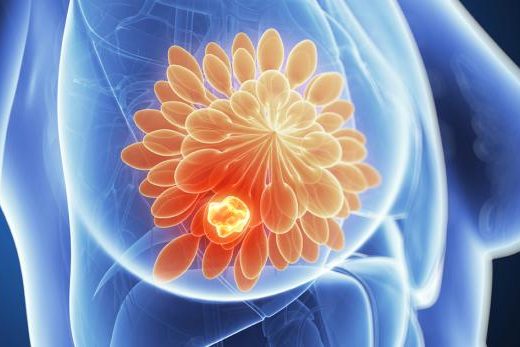Avoiding obesity and maintaining a stable weight in mid-adulthood could help prevent certain cancers in women, according to new a research presented at this year’s European Conference on Obesity (ECO) in Vienna, Austria (May 23rd-26th).
Obesity-related cancer in women
Among the findings it was discovered that women that gained too much weight (an increase of 10 kg or more within 6 years) were almost twice as likely to develop pancreatic cancer. The study was conducted by Marisa da Silva and her colleagues at the Arctic University of Norway, Tromsø, Norway.
Obesity and weight gain are known to independently increase the risk of various types of cancer, often referred to as “obesity-related” cancers. Previous studies have shown that not only having a high body mass index (BMI) contributes to an elevated risk of cancer, but also drastic weight gain, regardless of the initial BMI, is a factor that contributes to the risk of certain types of cancer.
The research
However, there are only a few published studies on nationally representative populations of women that address specific cancers related to obesity, such as pancreatic and kidney cancer, in relation to previous weight change.
This study aimed to assess the respective roles of BMI and weight change on the overall and specific risk of the location of obesity-related cancers in a large cohort of Norwegian women. It used data from self-reported questionnaires from the Norwegian study of women and cancer, linking this to the information on cancer diagnosis from the Norwegian Cancer Registry.
These questionnaires were completed during the period 1991-2011 and participants were asked about their weight, height, reproductive history, medication use, and lifestyle. The team then analyzed this to determine BMI, weight change over a 6-year period, and subsequent risk of obesity-related cancers defined as breast cancer (postmenopausal), colon-rectum cancer, endometrium cancer, ovary cancer, pancreatic cancer, kidney cancer, gallbladder cancer, gastric cancer, liver cancer, esophagus cancer (adenocarcinoma), meningioma, thyroid cancer, and multiple myeloma.
The BMI analysis sample group included 137,205 women and within this group there were 9,963 cases of obesity-related cancer during an average follow-up period of 18 years.
The findings
Obesity was found to increase the risk of postmenopausal breast cancer by 20% and kidney cancer by 95%. Endometrial cancer observed the highest risk increase in obese women who were more than twice as likely to develop the disease than normal-weight women.
The weight-change sample group included 82,001 women who were diagnosed with 5,329 obesity-related cancers during an average follow-up period of 13.7 years.
A drastic weight gain (defined as an increase of 10 kg or more within 6 years) was associated with a 36% increased risk of postmenopausal breast cancer, and a 40% increased risk of endometrial cancer.
The strongest association was with pancreatic cancer, which observed a 91% higher risk. This happened despite the fact that no link was found between BMI and the likelihood of developing pancreatic cancer.
The authors conclude that: “maintaining a stable weight in middle adulthood, regardless of baseline BMI, and avoiding excess body weight are important factors for the prevention of various types of cancer related to obesity in women.” They also noted that the finding of “increased risk of pancreatic cancer due to moderate and drastic weight gain represents a novel approach.”
Link: https://www.sochob.cl/web1/evitar-la-obesidad-y-mantener-un-peso-estable-son-importantes-para-prevenir-varios-tipos-de-cancer-relacionados-con-la-obesidad-en-las-mujeres/
Date: June 18th, 2020
Source: https://www.eurekalert.org (17-06-20)
Nutrigenomics Institute is not responsible for the comments and opinions included in this article
Reference: European Association for the Study Of Obesity






